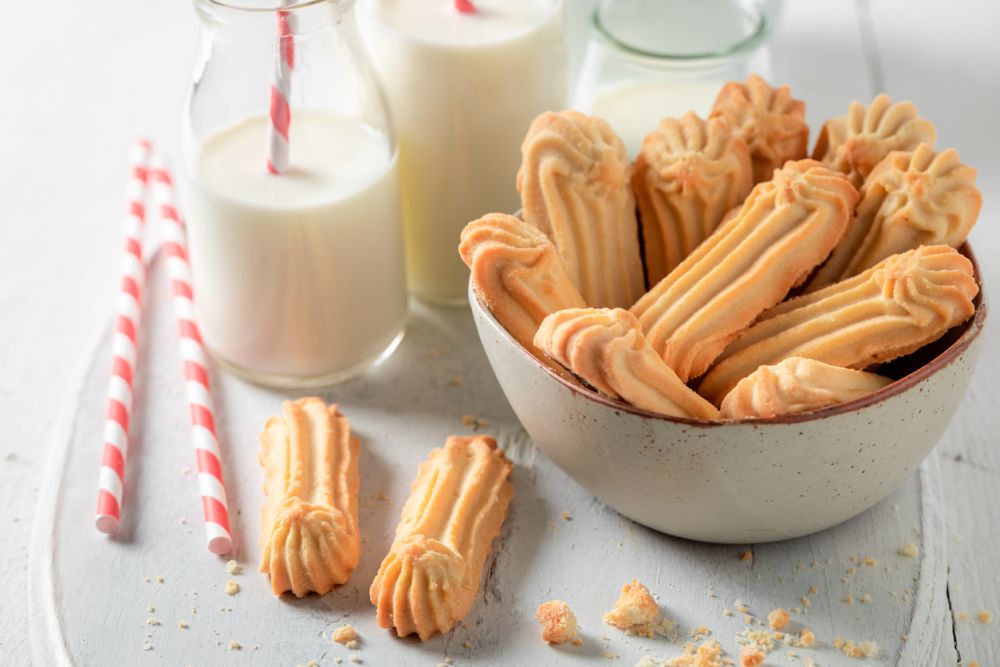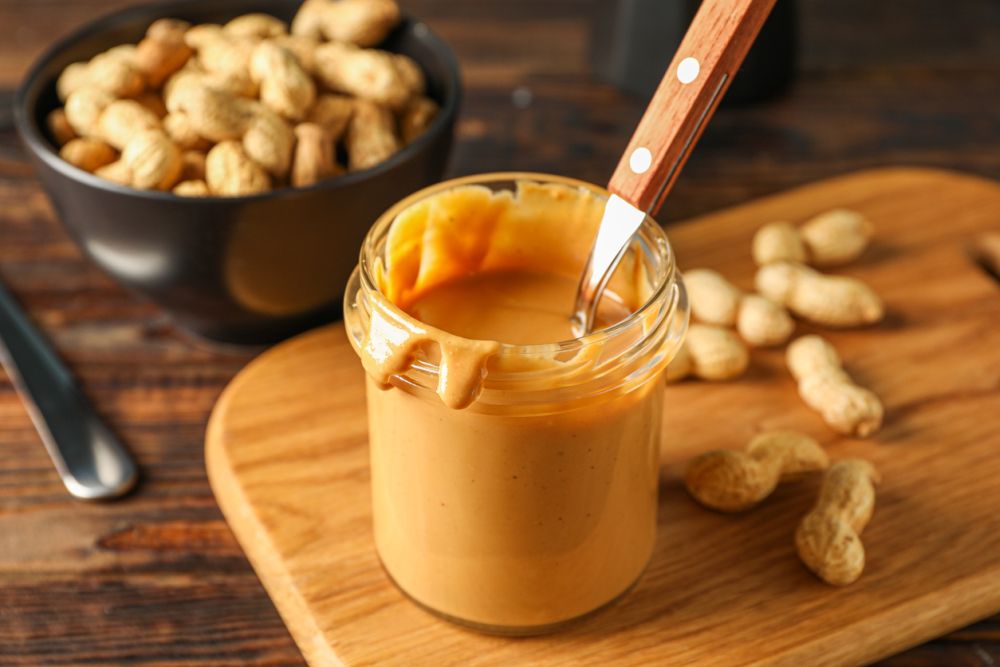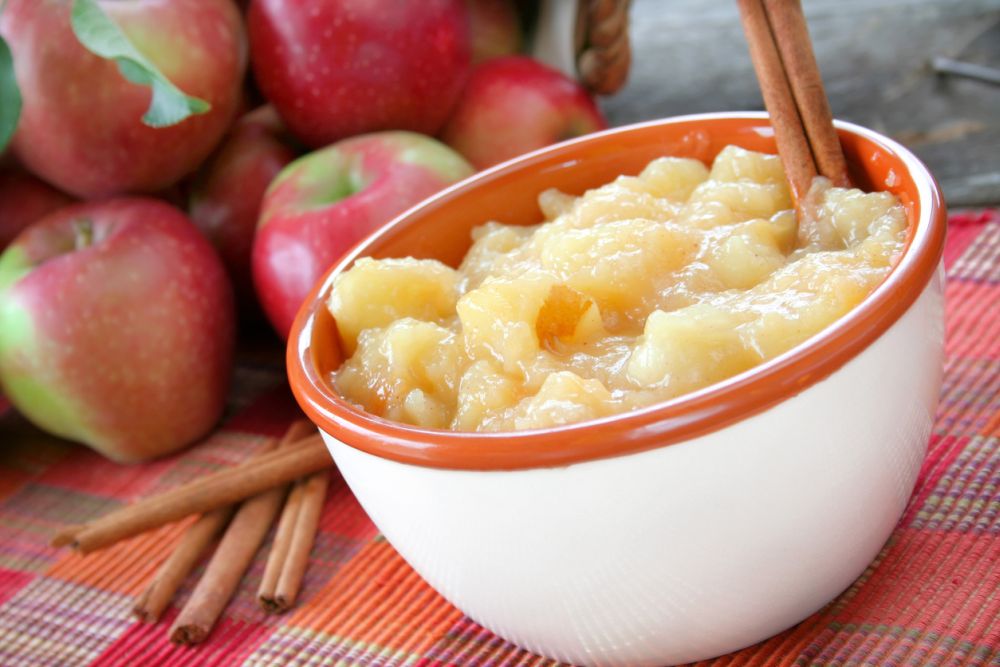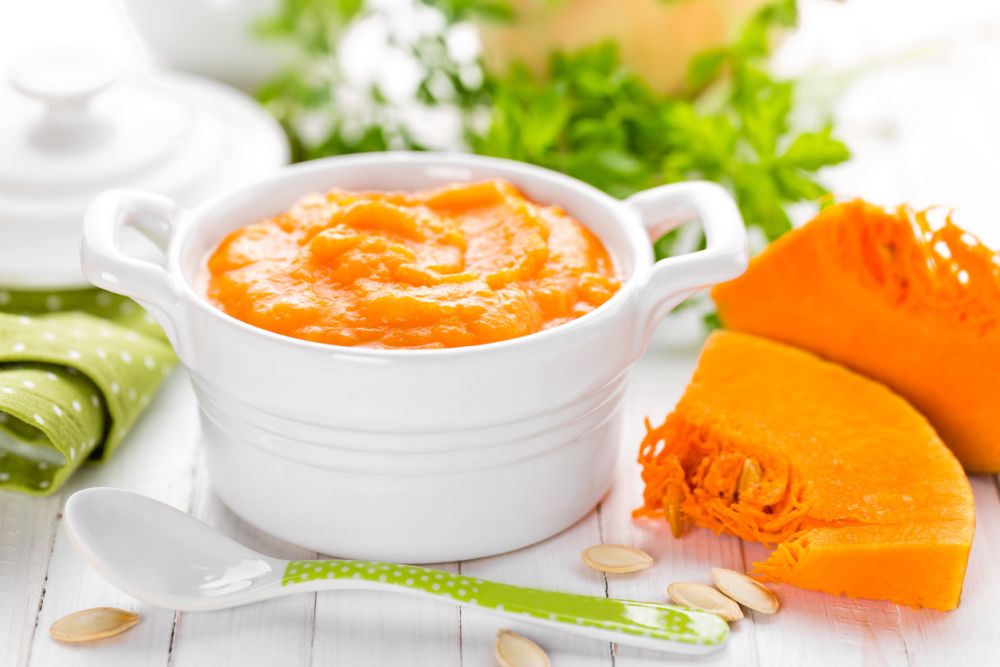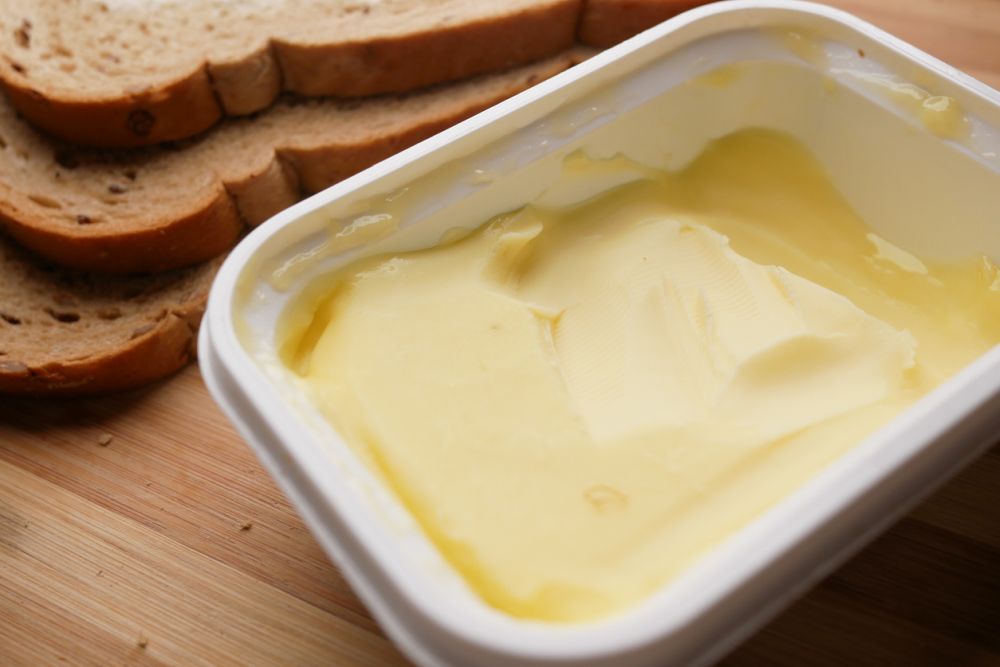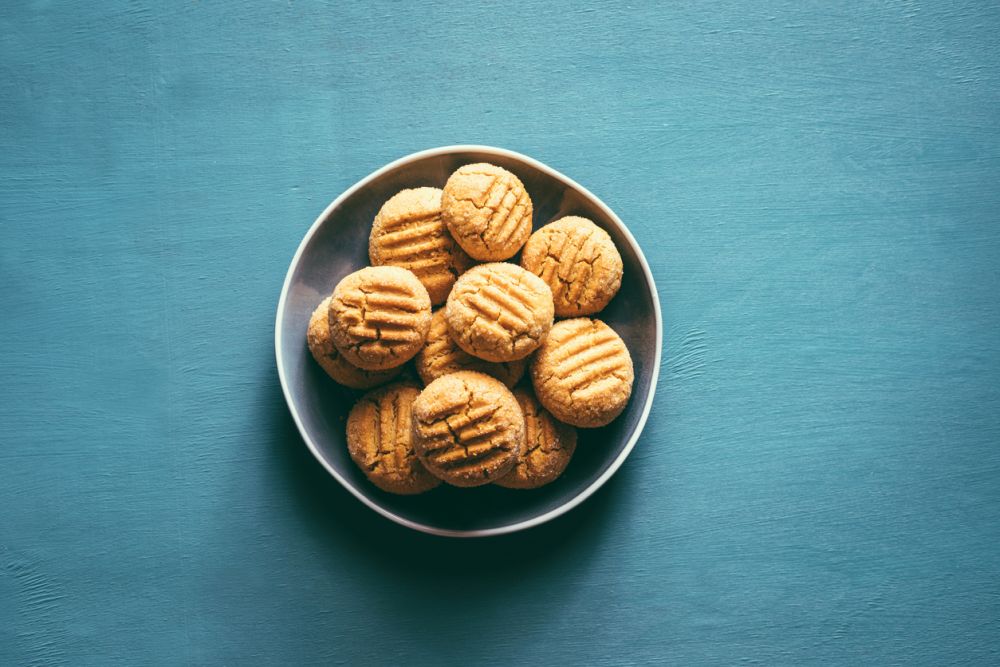The Best Substitute for Butter in Cookies: 8 Terrific Alternatives
If you’re looking for a substitute for butter in cookies, it’s probably because you want to reduce your intake of saturated fats. Or perhaps you’re allergic to dairy. Whatever the reason, here are the best alternatives to butter.
Let’s start with some bad news: there is no perfect substitute for butter in baking or anything else, not even the best vegan substitute spread.
But you can still have a few clever alternatives that come close, especially when baking cookies.
Table of Contents
The Importance of Butter in Cookies
Essentially, butter acts as a leavening agent, introducing air into the dough so that cookies turn out light and fluffy.
The butter’s fat and water content also contribute to the flaky, moist texture of cookies as well as their rich, tasty flavor.
So the perfect substitute for butter in cookies should play those roles as well as butter.
By the way, it’s also possible to freeze butter.
Why Replace Butter in Cookies
Here are a few reasons why you would be looking for a butter substitute when baking cookies:
- No butter. You may have run out of butter and don’t have time to run to the store.
- Milk allergy. Butter is a dairy product, so it contains a protein known as casein. Many people are allergic, so they should avoid butter if they are vegan or lactose intolerant.
- Health reasons. Butter is incredibly high in saturated fat, which is linked to an increased risk of heart disease, among other issues. In fact, some studies show that saturated fats in butter are more dangerous than those in other dairy products. Butter is also loaded with calories, so you should eliminate it to lose weight.
While butter is extremely delicious on its own and in baking, it’s not healthy. Compared to other dairy products like whole milk, cheese, or yogurt, butter seems to be less nutritious, yet it’s packed with unhealthy stuff.
Best Substitute for Butter in Cookies: 8 Options
1. Margarine or Shortening
Margarine is the most popular substitute for butter in cookies and other baked goods. It has a similar consistency and is just as flavorful.
In fact, margarine helps cookies keep their shape better than butter, and it’s significantly easier to work with.
Meanwhile, shortening has the same consistency as butter and margarine, but it falls short in flavor and water content. So you can bake extra tender cookies while barely noticing the difference in flavor.
When substituting butter with margarine or shortening, use the 1:1 ratio.
2. Ghee
Ghee is a form of clarified butter, without casein or lactose– ideal for lactose-intolerant people.
This and its delicious nutty flavor make it the perfect butter substitute for cookies.
Plus, ghee adds more moisture to cookies, which you can counteract by adding more flour.
When substituting butter with ghee, apply the 1:1 ratio.
3. Coconut Oil
Oils work very well as butter substitutes in cookies in general. But coconut oil has a consistency similar to butter and comes with some health benefits.
That said, coconut oil has a pronounced tropical flavor that can be off-putting. If you don’t like it, go for refined coconut oil instead of virgin oil. It also has more saturated fat than butter.
When substituting butter with coconut oil, stick to the 1:1 ratio.
4. Pumpkin Puree
If you want something healthier than coconut oil, you can’t go wrong with pumpkin puree.
It’s packed with fiber, beta-carotene, vitamin K and potassium, just to name a few.
Pumpkin puree is sweet and full of moisture, creating orange, soft, and delicious cookies.
Besides, you can freeze pumpkin puree so that you can easily use it whenever you want to whip up a batch of cookies or prepare other recipes.
When substituting butter with pumpkin puree, use the 1:1 ratio and reduce the amount of water since it’s thicker.
5. Applesauce and Other Fruit Purees
Applesauce adds moisture, texture, and flavor to your cookies, making it an excellent substitute for butter in cookies.
However, since fresh or frozen applesauce is thicker than butter and quite moist, you must make minor tweaks to your recipe.
Applesauce is easy since you can buy it from the store if you don’t feel like making it from scratch.
Besides, you can use other fruit purees, too. For instance, avocado is an excellent alternative, thanks to its butter-like consistency and fat contents. Bananas work well, too, but you have to reduce the amount of sugar.
When substituting butter with applesauce or another fruit puree, use the 2:1 ratio (puree-to-butter ratio).
But if you don’t like chewy or extra soft cookies, feel free to combine the puree with butter.
Fruit purees can also replace sugar in baking.
6. Greek Yogurt or Buttermilk
If dairy is not the problem, you can substitute butter with Greek yogurt or buttermilk.
These two are nutritional powerhouses with protein, calcium, healthy fat, and a whole host of vitamins.
Moreover, Greek yogurt and buttermilk add extra moisture to your cookies, making them soft and crunchy.
When substituting butter with Greek yogurt or buttermilk, use the 2:1 ratio (yogurt-to-butter ratio) since they contain more water. Alternatively, reduce the amount of water in your cookie recipe if you prefer the 1:1 ratio.
You can never have too much Greek yogurt in your house, especially since it’s possible to freeze it.
And, ifyou can’t run to the store to get buttermilk, make it yourself by adding a spoonful of lemon juice to fresh milk. Besides, you can use buttermilk in many delicious recipes.
7. Nut Butter
Nothing beats nuts and nut butterwhen it comes to proteins and good fats. The secret is skipping the hydrogenated fat kinds and going with the simple and natural nut butter.
Peanut butter, for example, works extremely well in cookies since it’s 50% fat and 20% water. You can also go with almond, cashew, or macadamia nut butter.
When replacing butter with nut butter, stick to the 1:1 ratio. And if you want the same texture as butter cookies, add ½ a cup of coconut oil or any other oil.
You can also bake cookies with peanut butter and bananasto avoid butter and sugar.
8. Oils
Oil is not the healthiest option, but it works just as well as butter in leavening the dough and making the cookies soft and textured. The downside is that it doesn’t add flavor and richness.
Vegetable, olive, sunflower, and almond oil are excellent choices.
When substituting butter with oil, apply the 1:3 ratio (oil-to-butter ratio).
Also, you might want to create a tiny batch of cookies when using olive or almond oil to see if you like the taste since they have a strong flavor.
FAQ
Discover more helpful information about butter substitutes:
What is the healthiest butter alternative?
If you can overlook the taste, coconut oil is the healthiest butter alternative for cookies. It boosts good cholesterol and fights insulin resistance. The taste of refined coconut oil is not so overwhelming.
Can I use mayonnaise as a butter substitute in cookies?
Yes, mayonnaise is a fantastic alternative to butter in cookies since it adds moisture and flavor.
Keep in mind that you should also cut eggs from your cookie recipe when using mayo.
Plus, you must bake the cookies at a low temperature since mayo is prone to splitting when heated.
Is it okay to mix butter substitutes in a cookie recipe?
Yes, we have mixed apple sauce and Greek yogurt before, and it was a fantastic idea.
But it might be necessary to adjust the other ingredients, depending on the butter substitute.
Will cookies fall apart if I substitute the butter with vegetable oil?
Not if done right. The trick is multiplying the butter by ¾ to give the cookies a moist and soft texture without crumbling or falling apart.
You must also reduce the water you add to the dough because oil is in liquid form.
This doesn’t apply to coconut oil, however, since it has a texture and consistency similar to butter, so you can stick to the 1:1 ratio.
Conclusion
Whether you’re baking healthier cookies or you simply ran out of butter, there are plenty of substitutes worth trying.
You just need to adjust the other ingredients used in the recipe.
What’s your favorite substitute for butter in cookies? Let us know in the comments below!
